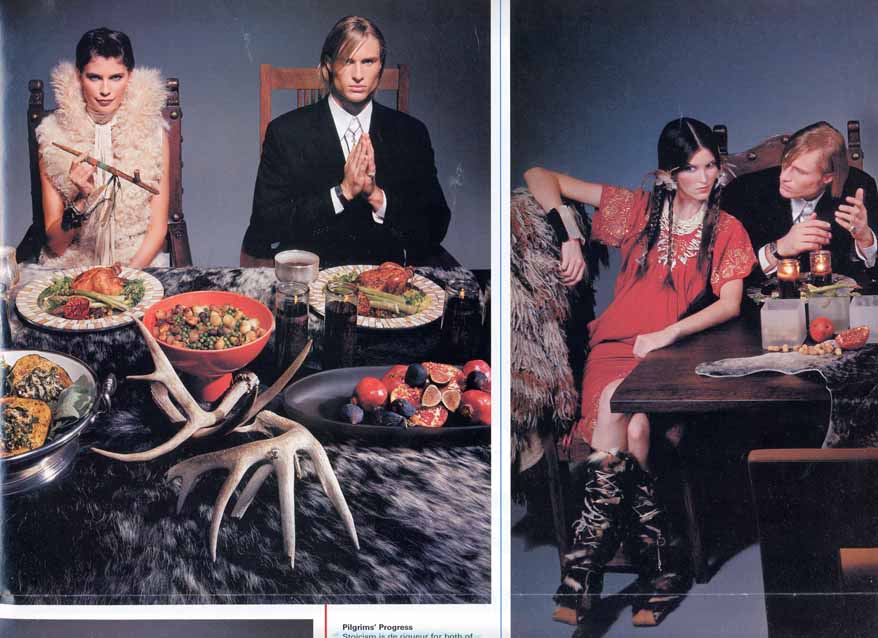 Another Stereotype of the Month entry:
Another Stereotype of the Month entry:
 Another Stereotype of the Month entry:
Another Stereotype of the Month entry:
Excerpts from the November/December 2002 issue of Paper City, a rag aimed at San Francisco's jet set:
The First American Dinner Party
Upon hearing the phrase "great American dinner party," glamorous flashes of Betsy Bloomingdale and Pamela Harriman might come to mind, but in fact the tradition is even more blue blood than that. In 1620 when the pilgrims pranced their way to Plymouth, they met up with a bevy of native beauties and threw the first American dinner party, a Thanksgiving fete our haute-est hostesses still haven't been able to rival. They did what any member of the bourgeoisie would do the minute they turn a profit (or have a few ears of corn on hand), and blew the whole thing on a lavish dinner party to impress the neighbors.
[Caption]
Pilgrims' Progress
Stoicism is de rigueur for both of these tribes....
[Caption]
Birds of a Feather
The natives are getting restless....
[Caption]
Native Dress
"Well, hail to the chief," thinks Mary Brewster as she wipes her flushed brow.
[Featurette]
The Original Guest List
Samoset—Our first friend who, amazingly, greeted us in the king's English.
Squanto—The last living Pawtuxet native, kidnapped to England and returned back to the New World—a must-have for his gossip and juicy rumors. Seat next to rival Hobomok. What fun!
Of course, the good Chief Massasoit of the Wampanoags must sit near me. I totally admire the way he styles his feathers. Oh, and must remember he gets 90 invites. Said something about some braves...
Rob's comment
The feathers, the pipe, the fur coat...I'm betting these had little or nothing to do with traditional Wampanoag culture. As for the other stereotypes....
Related links
Ten little Pilgrims and Indians
Tonto and the "good Indian"
Indian women as sex objects
Wooden cigar-store Indians
The big chief
|
. . . |

|
All material © copyright its original owners, except where noted.
Original text and pictures © copyright 2007 by Robert Schmidt.
Copyrighted material is posted under the Fair Use provision of the Copyright Act,
which allows copying for nonprofit educational uses including criticism and commentary.
Comments sent to the publisher become the property of Blue Corn Comics
and may be used in other postings without permission.